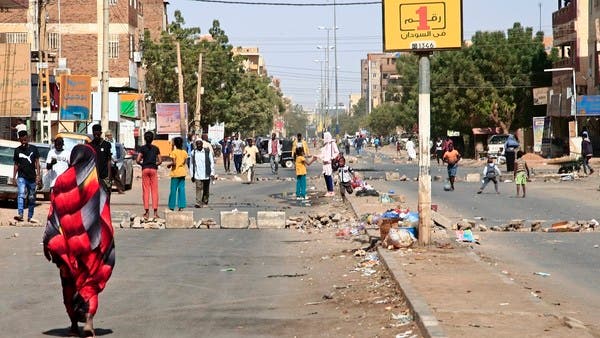Sudanese shuttered shops and barricaded streets with burning tyres and rocks on Tuesday, staging angry rallies to protest against one of the bloodiest days since a coup derailed the country’s democratic transition.
The civilian anti-coup mobilization might be taking a new turn in Sudan. Responding to the Forces for Freedom and Change, a influencial civilian bloc, call to start two days of civil disobedience on Tuesday protestor barricaded their streets. “Shop closed for mourning”, said a series of small signs posted on the closed outlets at the sprawling Sajane construction supplies market in Khartoum.
Security forces on Monday opened fire killing at least seven people as thousands marched against the army’s October 25 takeover. One of the merchants, Othman el-Sherif, was among those shot dead.
The protests come as Washington ramps up pressure in a bid to broker an end to the months-long crisis in the northeast African nation, with top US diplomats expected to arrive in the capital Khartoum for talks.
“We took to the streets to express our opinion peacefully but the military forces confronted us with live bullets, tear gas and sound grenades. Many of the protesters have been arrested and until now there are more than 10 people killed and others wounded in critical condition.
We call on all the Sudanese people, and to all the free revolutionaries to barricade all the streets to announce the civil disobedience until the putschists fall”, said Tarek, a protestor. In his neighborhood, he successfully barricaded the street however, according to witnesses, police fired tear gas at dozens of demonstrators setting up roadblocks in other parts of east Khartoum.
After Monday deaths, The United Nations special representative condemned the use of live ammunition. But The latest such appeals, have not curbed a rising death toll. The total number of the crackdown victims amounts to 71.
Protesters — sometimes numbering in the tens of thousands — have regularly taken to the streets since the coup led by General Abdel Fattah al-Burhan nearly three months ago.
The military power grab derailed a fragile transition to civilian rule following the April 2019 ouster of autocrat Omar al-Bashir, with prime minister Abdalla Hamdok resigning earlier this month warning Sudan was at a “dangerous crossroads threatening its very survival”.





